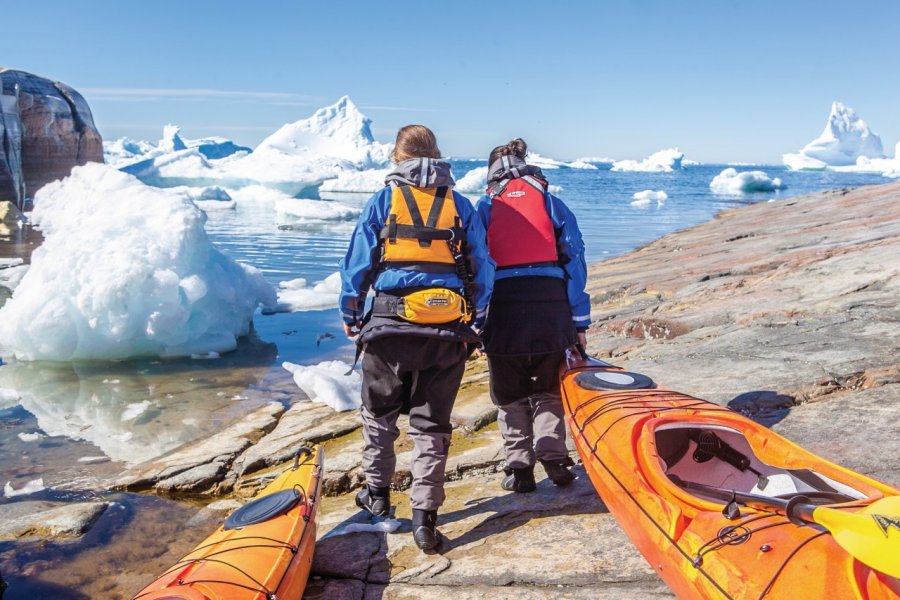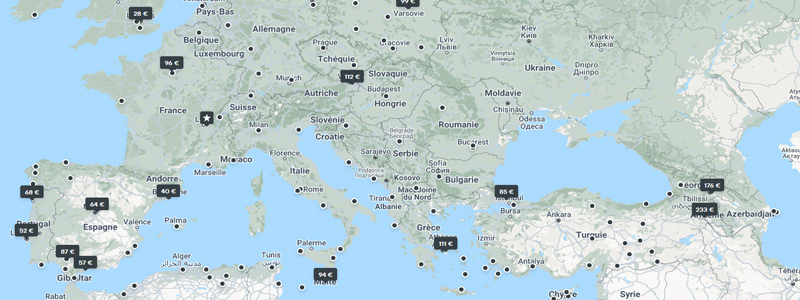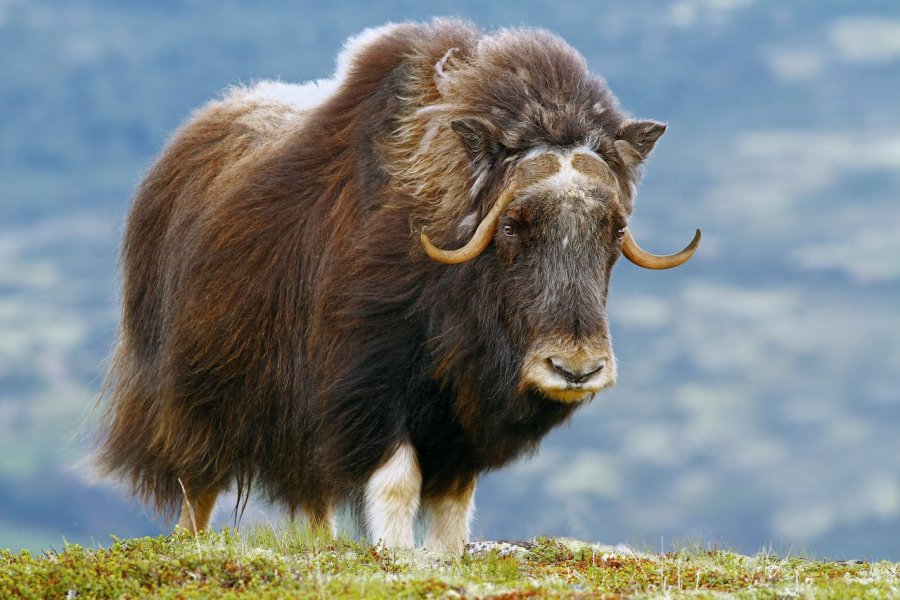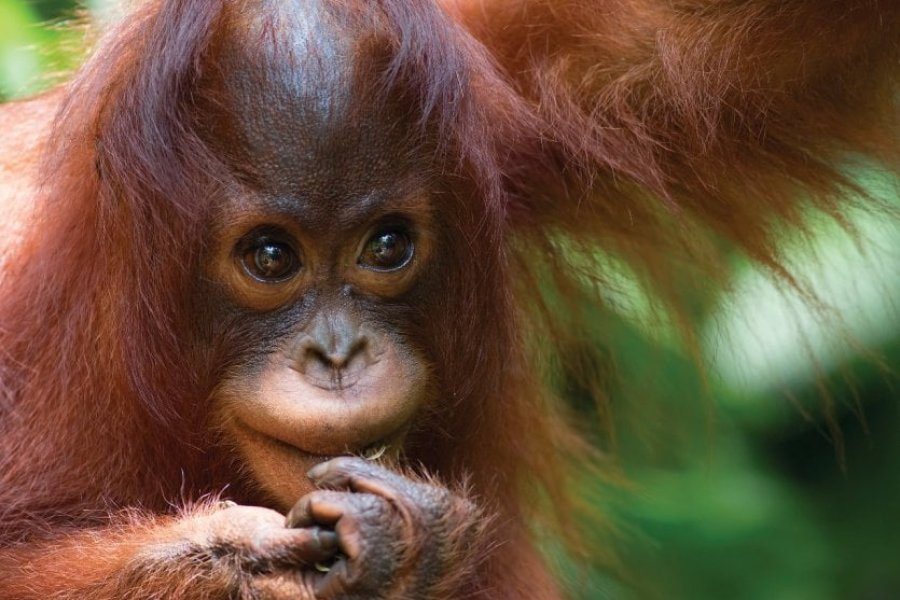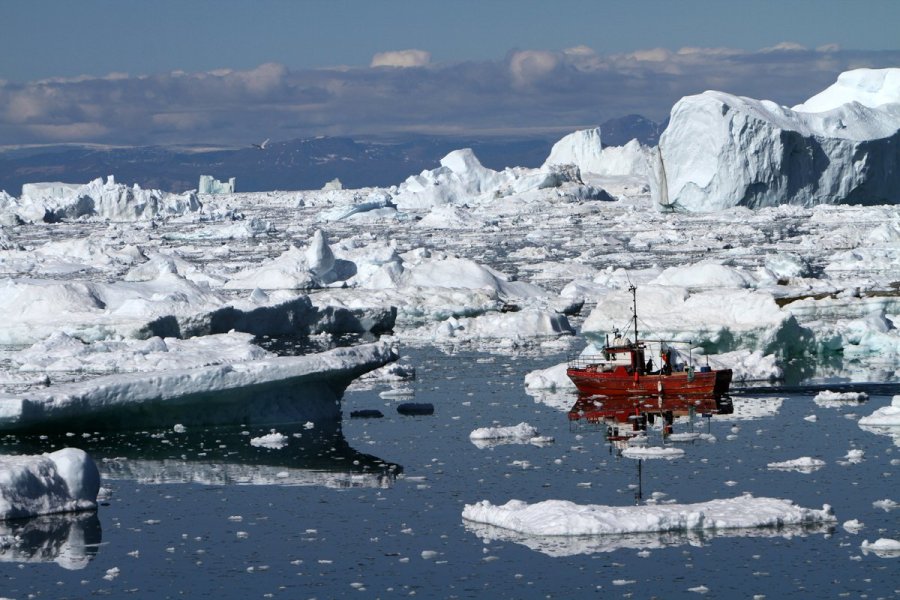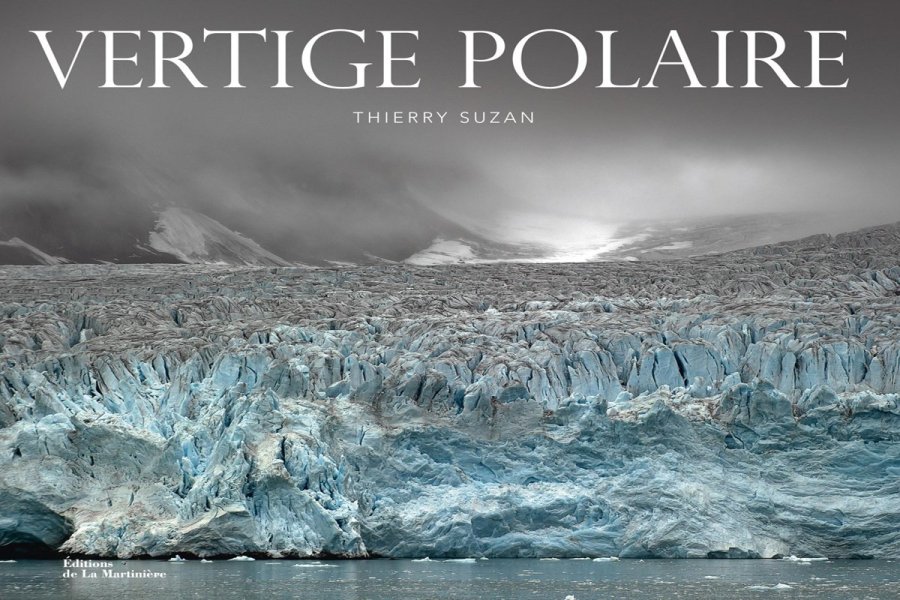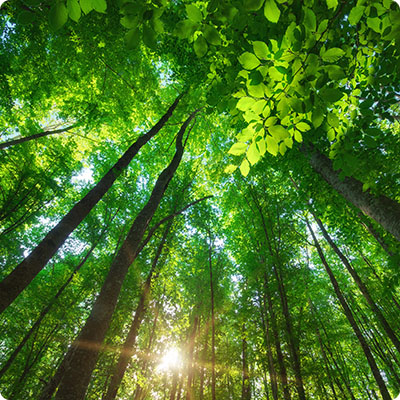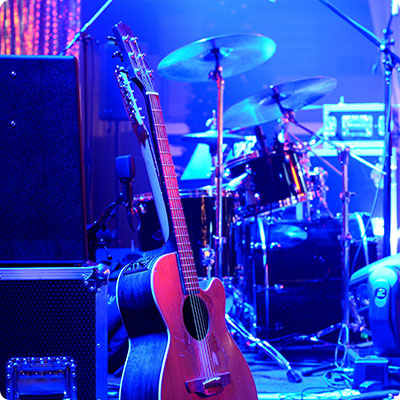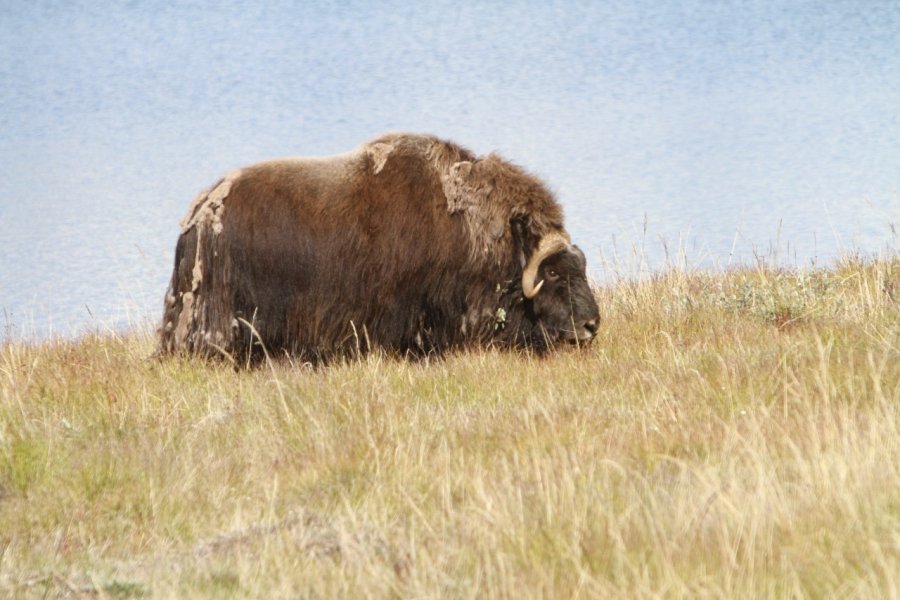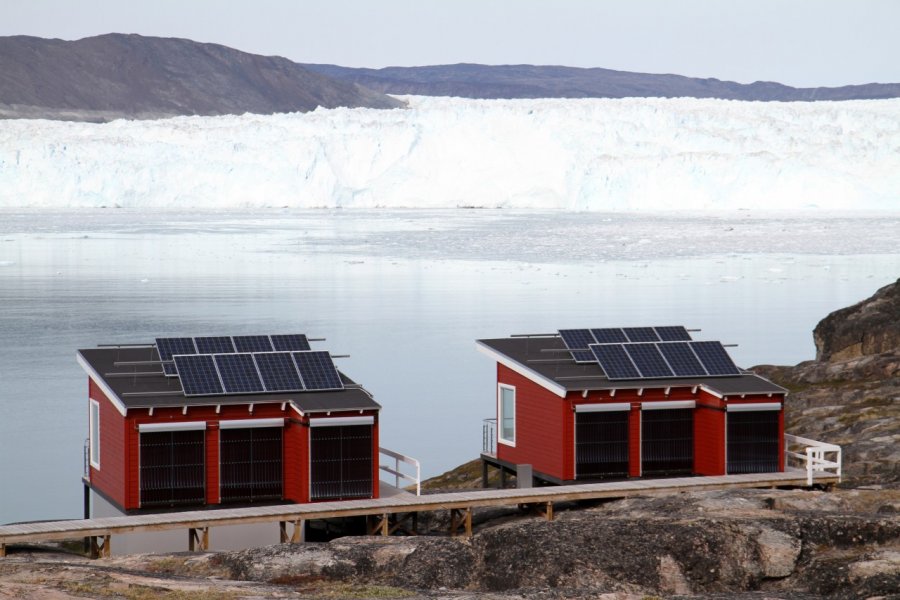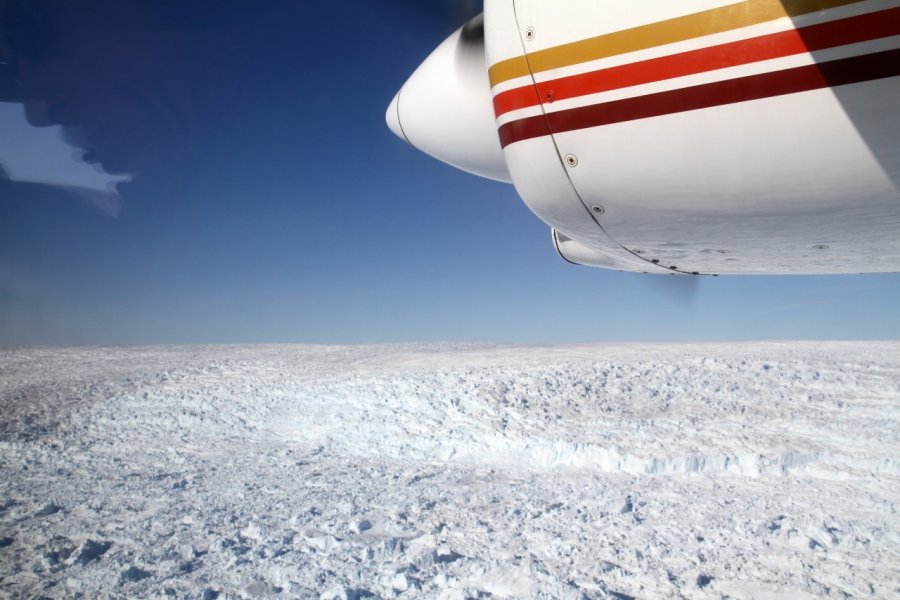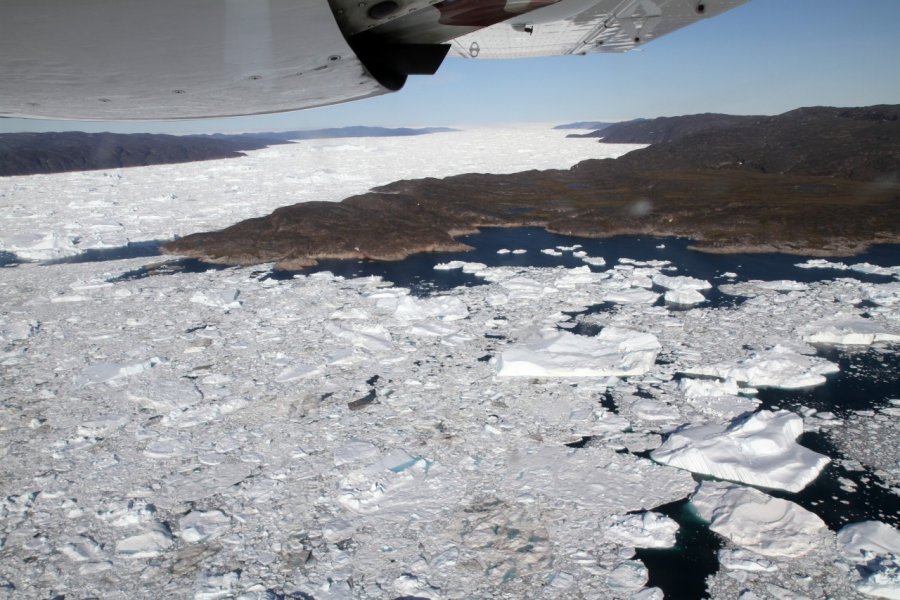Travel guide Greenland
Greenland is a land of fascinating contrasts and breathtaking natural beauty. This destination attracts adventurers from all over the world. The Greenland Travel Guide explores the many charms of this gigantic island, the largest in the world, located between the Arctic and the North Atlantic. A constituent part of the Kingdom of Denmark, Greenland has enjoyed autonomy since 2008, with a new self-governing regime. Local authorities now manage many sectors, such as the police, justice and control of natural resources, including oil, gas and minerals. Despite this autonomy, Greenland remains under Danish sovereignty. The state uses the Danish krone as its currency and depends on Denmark for foreign policy and defense. It is also an overseas territory associated with the European Union.
Historically, Greenland is a territory with a complex cultural past, marked by the Inuit and Nordic peoples. The region offers a unique insight into life in extreme conditions, where nature reigns supreme.
Geographically, Greenland is dominated by impressive expanses of ice, deep fjords and exceptional Arctic wildlife. The capital Nuuk offers museums, galleries and restaurants where you can sample the local cuisine. Try the famous seal stew and fresh fish!
The Greenland ice cap, which covers 80% of the island , is one of the highlights. Discover a veritable paradise of glacier hikes anddog-sledding expeditions. The fjords, such as the spectacular Ilulissat Icefjord, a UNESCO World Heritage Site, offer incredible scenery. They are an ideal playground for kayaking, iceberg and whale watching.
In summer, the midnight sun makes for endless days, perfect for exploring the flowering tundra, while winter brings the majestic spectacle of the northern lights.
Greenland is also a place where you can encounter a captivating culture, whether in traditional Inuit villages or at annual cultural festivals. Enjoy moments of serenity in the most beautiful hotels with breathtaking views. Hunting and fishing remain vital elements of Greenlandic life. Join in the fun! There's no better way to get an authentic perspective on local culture. Greenland is a land of unforgettable adventures, where grandiose nature and local culture suggest a unique and memorable travel experience.
What to see, what to do Greenland?
-
Book an activity
-
Customized travel
- The most beautiful cities Greenland
When to go Greenland ?
When can you go to Greenland for an unforgettable polar adventure? Watch whales, admire the northern lights and meet a wonderful population? This question is a must for all intrepid travelers! Here are some of the answers:
Spring (April to June): the best time to visit Greenland? The days are getting longer, and nature is awakening, with fjords still frozen and mountains covered in snow. It's ideal for ski touring and discovering the emerging wildlife. Prices are reasonable and there are fewer tourists.
Summer (July to August): time for midnight suns ! Greenland is decked out in its finest finery: thawing fjords and active wildlife. This is the high season, perfect for kayaking, hiking and whale-watching. Prices are higher, but the unique experience of midnight sun and verdant landscapes is well worth the detour!
Autumn (September to October): Northern lights? Autumn in Greenland is magical. The nights turn darker, suggesting an incredible light show. Less touristy, it's a time to enjoy nature's calm and milder rates.
Winter (November to March): intense and long. Temperatures plummet, it's low season and prices are at their lowest, ideal for dogsledding and ice fishing. But beware: days are short and conditions harsh.
Globe-trotters looking for thrills? Greenland has a whole host of sights to discover and experience: spring skiing, summer kayaking adventures, the autumn spectacle of the Northern Lights or the winter authenticity of dog sledding - the choice is yours!
Travel Greenland
-
Find a hotel
-
Car Rental
-
International e-SIM package
-
-5% on travel insurance
-
Find a local agency
There's no shortage of ideas when it comes to planning your trip, but there's no shortage of finances. Your stay will depend very much on your budget and therefore on your ambitions on the spot. If you are simply looking for peace and solitude during long walks, in a contemplative spirit of the end of the world, the budget will be more easily amortized unlike a stay enriched with various activities of all kinds whether it is a boat excursion to go observe the glaciers, a helicopter flight over the ice sheet, an arctic safari in search of musk oxen or, why not, a kayak tour to go whale watching. Covered by the ice cap, Greenland can be visited mainly on its coastal areas, which can be divided into four zones as in the chapters of this guide: South (Kujalleq), West (Kitaa), North (Avannaa) and East (Tunu).
Find unique Stay Offers with our Partners
How to go Greenland
How to go alone
Going to Greenland alone is an incredible, memorable and extraordinary adventure. Before you set off for this land of ice and mystery, plan your itinerary carefully. Major towns like Nuuk and Ilulissat are ideal starting points for exploring the surrounding area. To get around, options include local boats and small planes, as roads are almost non-existent between towns.
Learn a few Greenlandic expressions, such as Aluu (good morning) or Qujan (thank you), will help you connect with the locals. Greenlanders are renowned for their hospitality and warmth, so don't hesitate to strike up a conversation.
Find out about the weather and be prepared for the cold, even in summer. Take along clothing suitable for outdoor activities and don't forget your camera to immortalize grandiose landscapes.
Bear in mind that tourist services are limited, especially outside the main towns. Plan your accommodation and travel arrangements in advance. And finally, be flexible, because Greenland is a place where nature dictates the pace. With the right preparation and an adventurous spirit, traveling alone in Greenland is a sensational experience in a wild and majestic land.
How to go on a tour
Anorganized trip to Greenland is reassuring. For such an adventure, choose an agency specializing in polar destinations. They offer well-thought-out tours covering Greenland's main attractions: cruises in the fjords, hikes on the ice cap, and visits to Inuit villages!
A good Greenland package tour also offers a balance between guided activities and free time to explore at your leisure. This allows you to experience unique adventures, such as admiring the Northern Lights or observing local wildlife like whales. Finally, ask about the equipment provided, especially for specific activities such as kayaking or ice hiking.
How to get around
Getting around Greenland is an adventure, given the absence of roads linking the various towns. Most travel is by boat or plane. Local boats are a must for coastal travel. This is your chance to savor breathtaking views of fjords and icebergs. For longer distances or to reach remote areas, domestic flights are the norm. They connect major cities such as Nuuk, Ilulissat and Qaqortoq.
For a more immersive getaway, consider expeditions by kayak or dog sled, depending on the season. These traditional modes of transport allow you to experience Greenland in an authentic way.
Finally, plan these trips in advance, especially during the peak tourist season. The weather is teasing and often changes plans, so a certain flexibility and patience are in order. Sailing in Greenland means discovering the raw, untamed beauty of this Arctic land in a unique and unforgettable way.
Featured articles Greenland
Discover Greenland
Greenland, which has become a symbol par excellence of global warming, but above all the land of the Inuit, often turns out to be a destination adorned with clichés. But are they really? To allow you to get to the heart of the matter before you set foot on it, these files provide an overview of the history of the icy island, its economic and social issues, its cuisine and wildlife that is not limited to seals or whales, its climate that can push the mercury and the periods of brightness to the antipodes, of its struggle to preserve Inuit culture while being resolutely modern, and, above all, of its formidable resilience in the face of the extreme forces of nature... We'll give you a portrait of this land of unique landscapes, culture and hospitality.
Pictures and images Greenland
The 12 keywords Greenland
1. #Northern Lights
When huge patches of dancing light appear in the sky, the magic of the aurora borealis strikes the Earth with its green and red hues. This spectacle, visible throughout the country between September and March, is the result of the collision of atoms and ions in the ionosphere with other particles in the magnetosphere.
2. #Whale
Greenland is home to no less than... fifteen species of whale! During the summer season between May and August, it's easiest to spot humpback, Minke and fin whales. You can send your photo to the Nature Institute to help researchers and find out which whale you've seen.
3. #Night
Today, an estimated 89% of Greenland's population is of Inuit origin, making the country the main Inuit stronghold in the Arctic world. The term Inuit is preferable to Eskimo, which was coined by the settlers. Although most of the island's other inhabitants are Danish, the Inuit culture is still predominantly present.
4. #Iceberg
Greenland is the land of icebergs, thanks to its ice cap which, in a constant state of change and movement, produces thousands of icebergs every year. They can be found in all the country's waters, but Disko Bay, Ilulissat and the areas around Uummannaq are particularly renowned for their immense icebergs.
5. #Inlandsis
Also known as the ice cap, the Greenland ice sheet is the second largest mass of ice on Earth after Antarctica. The size of the ice cap is impressive, covering an area of 1,710,000 km2, or 80% of Greenland, and stretching 2,400 km in length between 60°N and 84°N. It is infinitely white...
6. #Kayak
It is one of the most traditional practices of ancient Inuit society. In the past, the qajaq was used for hunting and fishing, and some hunters still use it today. Some towns have kayak clubs, with occasional demonstrations where some people turn over in their boats in icy water...
7. #Polar bears
A symbol of power par excellence in the Arctic world, the polar bear(nanoq) is also used on Greenland's national coat of arms. It lives in the northernmost parts of West Greenland, but can also be seen elsewhere. However, it is rare for locals or tourists to see a live polar bear.
8. #Seal
The island is home to five different species of seal, with ringed, harp and hooded seals the most common. Seals are synonymous with Greenland's hunting culture, but baby seals are not killed anywhere. Avoid unpleasant remarks about Brigitte Bardot!
9. #Climate
Greenland is often associated with the hotly debated issue of global warming because of its ice cap, which contains 10% of the world's freshwater reserves and is melting at an exponential rate. While there are still huge quantities of ice to admire, and for generations to come, the only question is how much longer..
10. #Midnight Sun
The polar day is a period of the year when the sun does not dip below the horizon. This phenomenon occurs from March to September above the Arctic Circle. On June 21, the summer solstice, the sun remains constantly visible. The opposite is true in winter: polar night. A disorientating experience!
11. #Dog sledding
The local means of transport and winter hunting for centuries! Recently, it has also become a leisure activity for locals and tourists alike. Arctic temperatures and several meters of snow are no match for the incredible sensations that warm your soul on a dog sledding trip...
12. #Viking
South Greenland was colonized by the Vikings in the 980s with the arrival of Erik the Red, who named the country "Greenland" because of the agricultural land, but above all to attract new settlers. Magnificent ruins, classified as a Unesco World Heritage Site in 2017, can be seen throughout the region. A must-see!
You are from here, if...
You often say "Immaqa!", literally "maybe, we'll see!" This word sums up the soul of Greenlanders accustomed to bending to the recurring upheavals generated by the climate.
You consider yourself a "Kalaallisut" inhabitant. This term designates both the country's official language and its national costume, but above all it is used by locals who call themselves "Kalaallit" (not Inuit).
You regularly visit friends and family for a Kaffemik (literally "with coffee") to celebrate a birthday, a birth, a christening or any other happy event!
You often go hunting or fishing. A matter of survival in ancient times, these practices remain deeply rooted in Greenlandic culture. The first catch is a great event celebrated at a kaffemik!
You're strongly attached to your traditions, yet modern and connected. Gone are the clichés of Greenlanders dressed in bearskins and living in igloos!
